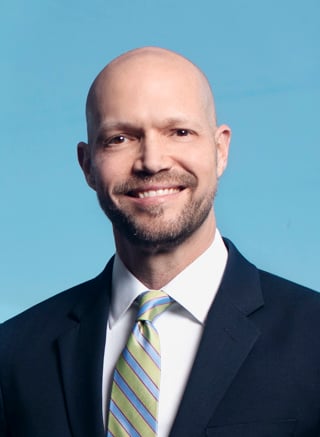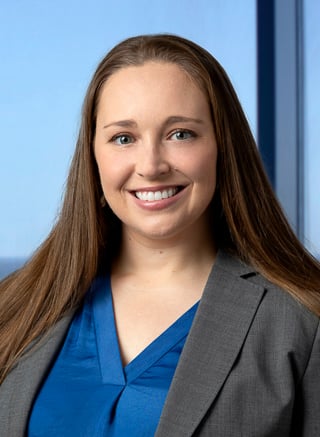Recent $900 Million FCA Settlement Highlights Risks in Speaker Programs
Life Sciences Litigation Alert
Several days ago, Biogen Inc. announced that it had reached a settlement to resolve a whistleblower lawsuit under the False Claims Act (FCA). Relator’s claims were based on allegations that Biogen’s speaker and consultant programs were a façade for a scheme to pay doctors in exchange for prescribing Biogen drugs in violation of the Anti-Kickback Statute (AKS). Claims submitted to the government resulting from a violation of the AKS are deemed fraudulent claims under certain provisions of the Affordable Care Act passed in 2010. This settlement is only the latest in high dollar FCA settlements related to speaker and consultant programs. Government scrutiny of these programs is increasing for both the companies that conduct the programs and the physicians that participate in them. Applying the lessons of recent enforcement efforts and government statements about speaker programs may be the key to mitigating the risks inherent in such programs.
Speaker and Consultant Programs
Speaker and consultant programs are common in the pharmaceutical and medical device industries. Such programs facilitate the exchange of information between physicians that prescribe drugs or use devices, and the companies that develop and manufacture such products. Typically, physicians that utilize the drugs or products go through training programs, attend meetings with the company and provide feedback on clinical matters, and speak to practitioners at events organized by the company or a third-party contractor employed by the company.
The programs have the benefit of providing expert advice and medical education directly from practitioners experienced in the use of the products or drugs. Events are held in a variety of settings – including restaurants – where rooms are available, which are conducive to a private presentation. Often the physician will present to other physicians in the same area of expertise using a PowerPoint presentation developed by the pharmaceutical or device company. The presenting physician is often restricted from speaking “off script” due to FDA compliance concerns related to off-label marketing.
Although many practitioners find such programs valuable to obtain information related to new drugs, devices, and treatments, the nature of such programs creates risks for the company implementing the programs and the doctors participating in them. To manage such risks, companies and physicians must understand the characteristics of these programs that have garnered enforcement authority attention and plan their programs accordingly.
The Anti-Kickback Statute
The Anti-Kickback Statute is a criminal statute that makes it illegal to knowingly and willfully solicit or receive any remuneration (broadly defined as anything of value):
- in return for referrals for items or services for which payment may be made by a federal healthcare program; or
- in return for purchasing, ordering, or arranging for recommending purchasing, leasing, or ordering of any good, facility, or service for which payment may be made by a federal healthcare program.
Violation of the AKS can result in incarceration and criminal fines. Additionally, violation of the AKS can result in FCA liability for the submission to the federal government of claims tainted by the AKS infraction. Under the government’s typical theory of liability in AKS cases, all claims submitted to a federal health insurance program such as Medicare or Medicaid arguably resulting from the kickback are deemed false claims under the FCA. Thus, the government can recover three times the amount paid on such claims, plus civil penalties between $12,537 and $25,076 per claim. Damages and penalties in these cases are often enormous.
Special Fraud Alert and Government Skepticism of Speaker Programs
In late 2020, the HHS Office of the Inspector General (OIG) issued a Special Fraud Alert on speaker programs. A summary of the alert and our firm’s analysis of it can be found here. In addition to describing several activities the government views as particularly problematic in speaker programs, the alert includes several general statements demonstrating the government’s opposition to these programs.
Although, the recent alert is the government’s most comprehensive statement to-date about its views on speaker programs, enforcement actions in this area are not new. Numerous participants in the pharmaceutical and medical device industry have entered settlements in recent years to resolve allegations related to their speaker programs, including:
- Daiichi Sankyo, Inc. for $39 million in 2015;
- Abiomed, Inc. for $3.1 million in 2018;
- ACell, Inc. for $15 million in 2019;
- Insys Therapeutics for $225 million in 2019;
- Teva Pharmaceuticals for $54 million in 2020;
- Novartis Pharmaceuticals Corp. for $678 million in 2020; and, most recently,
- Biogen Inc. for $900 million in 2022.
Although DOJ settlement agreements, press releases, and complaints in intervention may provide insight into the conduct the government finds objectionable, the documents do not provide the frank details and commentary available in the alert.
Perhaps the most important aspect of the Special Fraud Alert is the direct expression of OIG’s generally negative views about the utility of speaker programs. Bluntly stating, that it is “skeptical about the educational value of [speaker] programs,” OIG continues: “[t]here are many other ways for [healthcare providers] to obtain information about drug and device products and disease states that do not involve remuneration to [healthcare providers].” OIG puts the industry on notice that “[p]arties involved in speaker programs may be subject to increased scrutiny.”
Given OIG’s general skepticism of these programs and expressed intent to increase scrutiny of them, participants should look closely at the characteristics of speaker programs that OIG referenced and design programs to avoid these red flags where possible. The list of such program characteristics includes:
- The company sponsors speaker programs where little or no substantive information is actually presented;
- Alcohol is available or a meal exceeding modest value is provided to the attendees of the program (the concern is heightened when the alcohol is free);
- The program is held at a location that is not conducive to the exchange of educational information (e.g., restaurants or entertainment or sports venues);
- The company sponsors a large number of programs on the same or substantially the same topic or product, especially in situations involving no recent substantive change in relevant information;
- There has been a significant period of time with no new medical or scientific information nor a new FDA-approved or cleared indication for the product;
- Practitioners attend programs on the same or very similar topics more than once (as either a repeat attendee or as an attendee after being a speaker on the same or substantially the same topic);
- Attendees include individuals who don’t have a legitimate business reason to attend the program, such as friends, significant others, or family members of the speaker or attendee; employees or medical professionals who are members of the speaker’s own medical practice; staff of facilities for which the speaker is a medical director; and other individuals with no use for the information;
- The company’s sales or marketing business units influence the selection of speakers, or the company selects speakers or attendees based on past or expected revenue that these individuals have or will generate by prescribing or ordering the company’s product(s) (e.g., a return on investment analysis is considered in identifying participants);
- The company pays speakers more than fair market value for the speaking service or pays compensation that takes into account the volume or value of past business generated or potential future business generated by the practitioners.
OIG’s release of a Special Fraud Alert on this subject also has practical implications for companies subject to increased government scrutiny. The Department of Justice routinely cites Special Fraud Alerts in FCA complaints in intervention to demonstrate that companies should have been aware that their conduct may violate the AKS and FCA. Thus, developing speaker and consultant programs in accordance with the statements in the alert may significantly mitigate risk or AKS and FCA liability.


